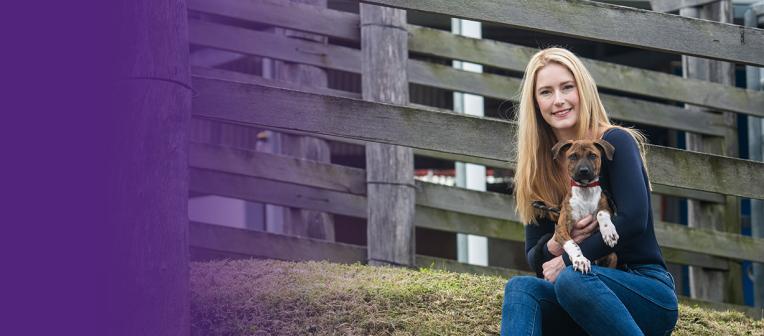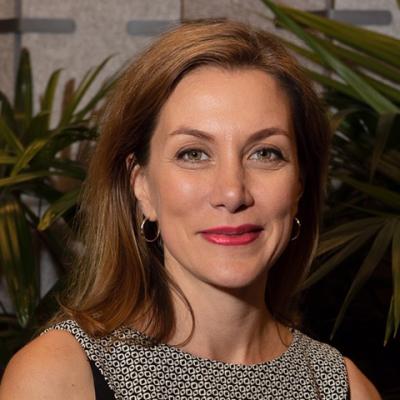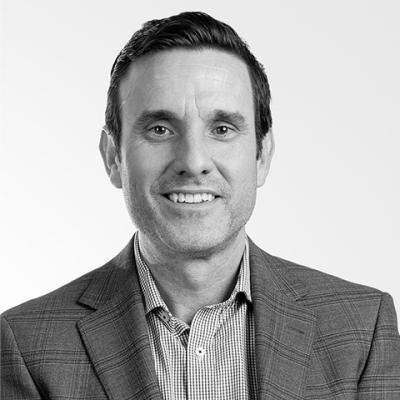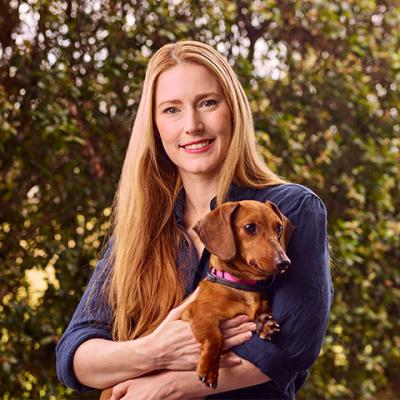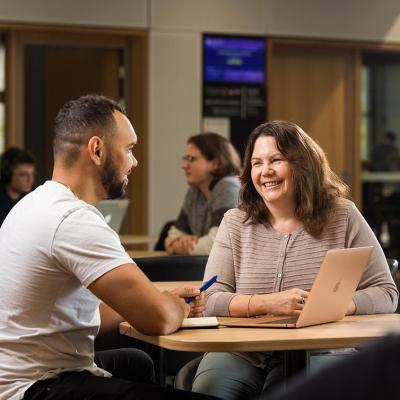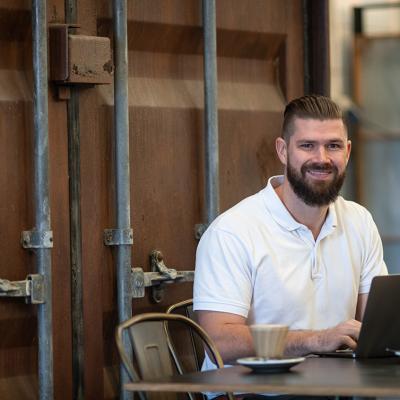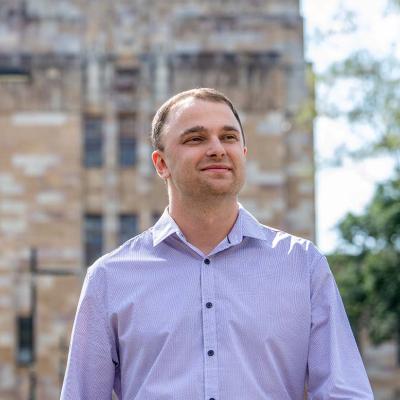If you’ve got the drive and passion for a new field of work, you can change careers no matter your age.
That’s the resounding message from Zoë Black, Nicolai Ahlstrand and Susan Mizrahi. These 3 UQ postgrad alumni are now pioneers in their respective industries and living proof that it’s never too late to change careers.
But it’s one thing to say you can drop everything (including an established career) to pursue a newfound ambition. Doing so is another – and it takes time and work.
We asked these career-changing role models:
- how to know if it’s time to change careers
- how they made the change themselves
- what advice they have for others who want to do the same.
Whether you’re on the fence about leaving your current field, already committed to making a move or wondering “am I too old to change careers?”, read on for inspiration and practical tips to help you on your journey.
How to know when it’s time to change careers
Some people experience a lightbulb moment where they suddenly realise what they should be doing with their career (or that they should leave their current job). For others, it takes time and self-reflection to get into the right headspace to consider the possibilities. Susan, Nicolai and Zoë have shared their stories below to show how every career change is unique.
Susan's story: a realisation and a reason
For Susan Mizrahi, the “aha!” moment came from recognising that corporations today have just as much money and social influence as governments – if not more. This was a stark contrast to how things were during the post-Cold War era when she was growing up, where states were perceived as the dominant actors and changemakers in society.
The problem is that many organisations don’t use their resources to full effect.
“Most companies aren’t necessarily seeking to do the wrong things, but they don’t know how to do the right thing,” Susan says.
“Businesses need to develop the ability to positively impact society and the environment, especially given the complexity of issues facing the planet today.”
This realisation led to Susan transitioning from her human rights work in Washington D.C. to become Australia Post’s first Chief Sustainability Officer – and just the second in the country. Here she led a team of sustainability and corporate responsibility experts. Her team focused on how Australia Post can enhance its positive impacts while reducing the negative (e.g. carbon emissions, packaging).
And this wasn’t her first major career change.
Prior to her 10 years as a human rights advocate and campaigner, specialising in areas such as China-Tibet relations and human trafficking, Susan worked in the communications sector.
She recognises her career as having 3 key phases:
- strategic communications
- human rights advocacy
- driving sustainability.
Yet even while jumping between these different fields, Susan’s career paths have been united by 2 common goals:
- developing herself professionally
- making a real difference in the world.
“In each role, I was able to build on the skills and knowledge from the previous phase,” she says.
“Through each aspect of my career, I have focused on bringing about positive, systemic change.”
Since this article was published, Susan has gone on to become the General Manager (Sustainability) at Allianz.
Nicolai’s story: circumstances and a spark
For Nicolai Ahlstrand, who previously worked in resource sector infrastructure development, the final push to make a career change came from the mining downturn of 2015. After having to let a lot of people go, he came to the realisation that he couldn’t stay either.
“Eventually I just told the boss it was my turn to go,” Nick says.
“That redundancy provided the vehicle I needed to get out and make the transition to the public service.”
This move had already been on Nick’s mind for a while, since he started noticing how the mine operators engaged with regulators whenever they attended a site.
“I knew I didn’t want to be an actual mine inspector,” Nick says.
“But I wanted to learn more about how it all works. I wanted to find a level of involvement across the industry, something that would enable me to influence health and safety outcomes for these people working in such a high-risk industry.”
Now, as the Chief Transformation Officer at Resources Safety & Health Queensland (RSHQ), Nick gets to do just that. He supports regulators and mine operators in ensuring health and safety standards are met through the organisation’s unique operating model. He's also responsible for managing RSHQ's long-term transformational programs that span across data, digital and business change
Even though the career change was somewhat forced upon him, Nick hasn’t looked back for a moment.
“There’s no way I’d come close to gaining the same knowledge so quickly in my old role,” he says.
“I’ve learned more about the industry in 2-3 years than I did in my 15 years in the previous job. And it’s easier to sleep at night knowing I’ve played a role to help improve safety and health outcomes for mine workers.”
Zoë’s story: self-reflection and a social enterprise
Zoë Black used postgraduate study to pivot her career – but not in the direction she originally intended.
“I actually started my MBA with the plan of becoming a project manager,” Zoë says.
“But a whole range of things led me to changing the course and finding a pursuit more aligned to my values.”
Previously working in the commercial construction sector, she is now the co-founder of Happy Paws Happy Hearts Foundation, a social enterprise that brings isolated people and rescued animals together for everyone’s benefit.
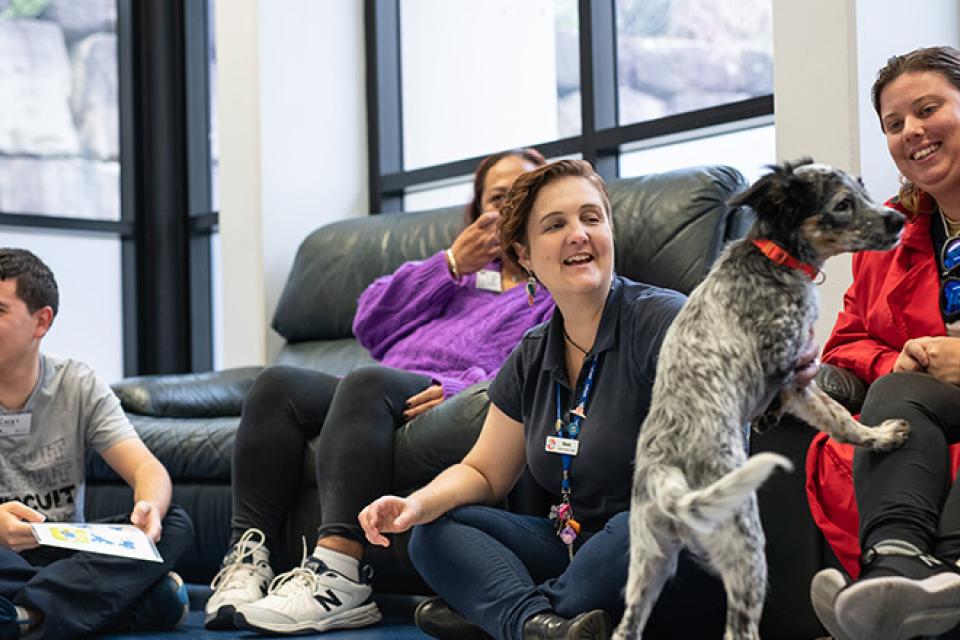
While Zoë did have a lightbulb moment, self-reflection was the key to her considering a career change in the first place.
“Before I left the commercial sector, I spent some time reflecting on how to get back to the things that brighten my life,” she says.
“Then, while volunteering with the RSPCA, I got to see how powerful the work being done there is, and I saw people working towards a clear vision and purpose.”
It was during her extra work in the social sector via the MBA that Zoë discovered the concept of social enterprise and started exploring how her societal interests could combine with her commercial experience.
“It was a very ‘wow, worlds come together’ moment.”
5 key steps for changing careers
A lightbulb moment and some inspirational examples aren’t enough to make a successful career change. So, we asked Zoë, Nicolai and Susan to share their advice for chasing your new ambitions.
Final thoughts
If you’ve read this far, you won’t be surprised by how these alumni responded when we asked them: “is it ever too late to change careers?”
That’s a definite and confident no from all three.
By following the practical advice above, you too can pursue a newfound passion – no matter your age or prior work experience.
Browse our postgraduate programs today to launch your new career journey.

